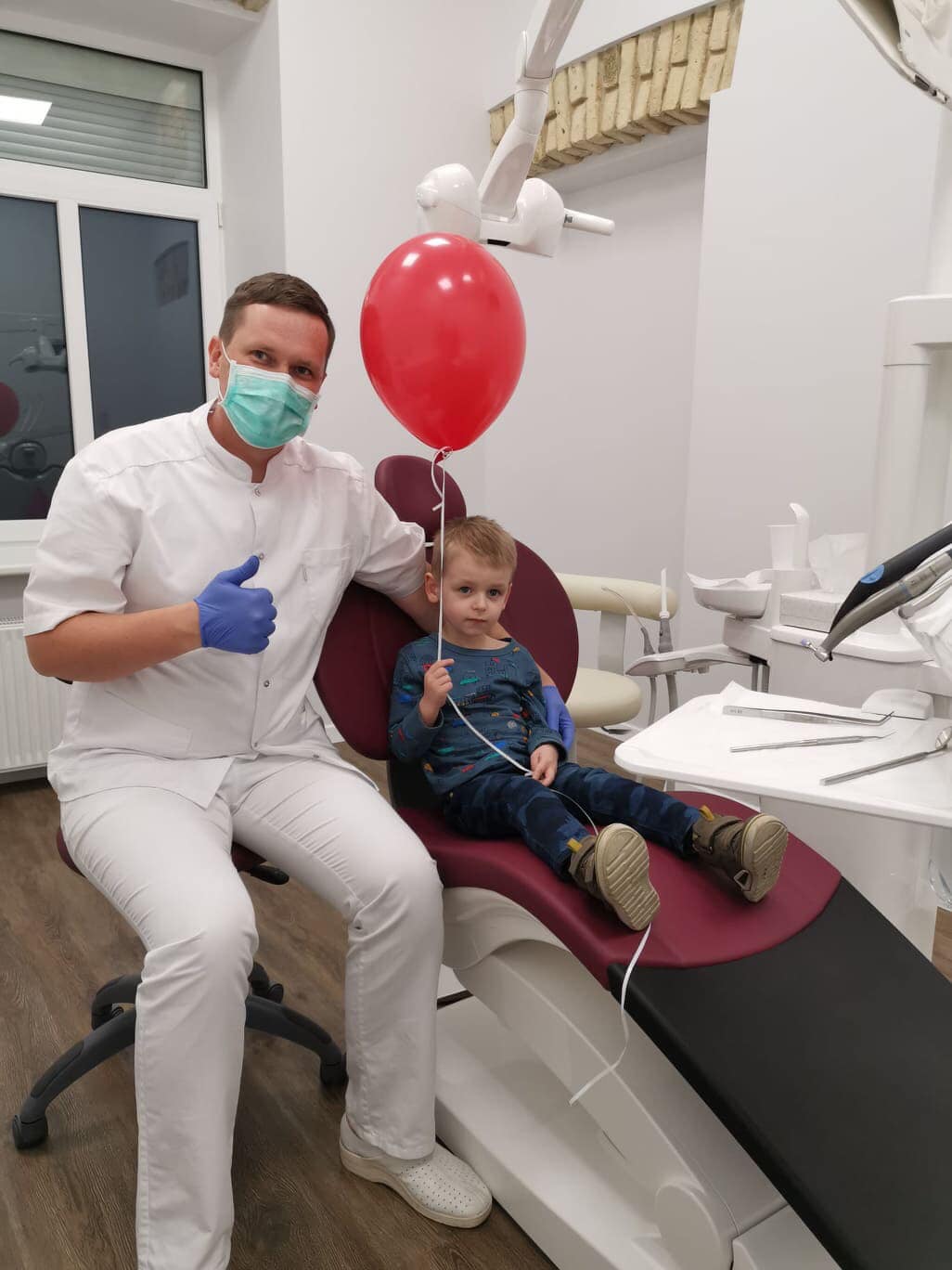CHILDREN
DENTIST
-
How to prevent early caries in children?
Early childhood caries or bottle caries is a dental disease where the teeth are affected by caries in children between birth and 71 months. It can be prevented by following a proper diet (avoiding carbohydrates, snacks, avoiding eating at night) and proper teeth cleaning (good mechanical tooth brushing with a toothbrush is very important, toothpaste with fluorides is recommended). Don't forget regular visits to the dentist.
-
What to do if the child is afraid to enter the dentist's office or has difficulty sitting in the chair?
You need to get used to visiting the dentist from a young age and do not delay the problem, do not wait until the tooth starts to hurt. Tell the child that the dentist will only count the teeth and give gifts, and if the child wants, he will show the available devices in the office, so that it is not scary. If the fear is very high, after examining the teeth, an appropriate treatment plan will be suggested: cognitive therapy, treatment with sedation or general anesthesia.
-
When should you be concerned about the smoothness of your teeth?
It is recommended that all children visit an orthodontist for the first time at the age of 6-7, but if you have questions or are referred by a dentist, come for a consultation earlier.
-
How often should you take your child to the dentist?
It should be brought for the first time after the first tooth erupts. After that, appear every 4-6 months, ie 2-3 times a year. Milk teeth deteriorate faster due to the peculiarities of anatomy, so intensive care is required.
-
How to preserve a child's correct bite?
There are many factors that change the bite. First things first: the best pacifier is no pacifier. Avoid parafunctions (e.g. thumb sucking), breathing must be correct (through the nose, if it is otherwise - consult with ANG specialists or physiotherapists). Care for baby teeth as they hold space for permanent teeth.
-
How to react to protruding teeth and interdental teeth?
If parents notice an irregular bite, they should consult an orthodontist, who will plan treatment or check-up visits as the child grows. Wide interdental teeth in a milk bite is normal, these are called primate gaps.
-
Are baby teeth repairable? What do yellow and brown spots on the teeth mean?
Yes, baby teeth are treated and must be treated, because they can also hurt, and the last baby teeth fall out only at the age of 12. Yellowish and brown spots can be lesions of pigment plaque, caries or hypoplasia. Even if all the teeth seem to be without holes, the child's teeth should still be shown to a specialist, because only with good lighting and after cleaning and drying the teeth is it possible to diagnose caries.



